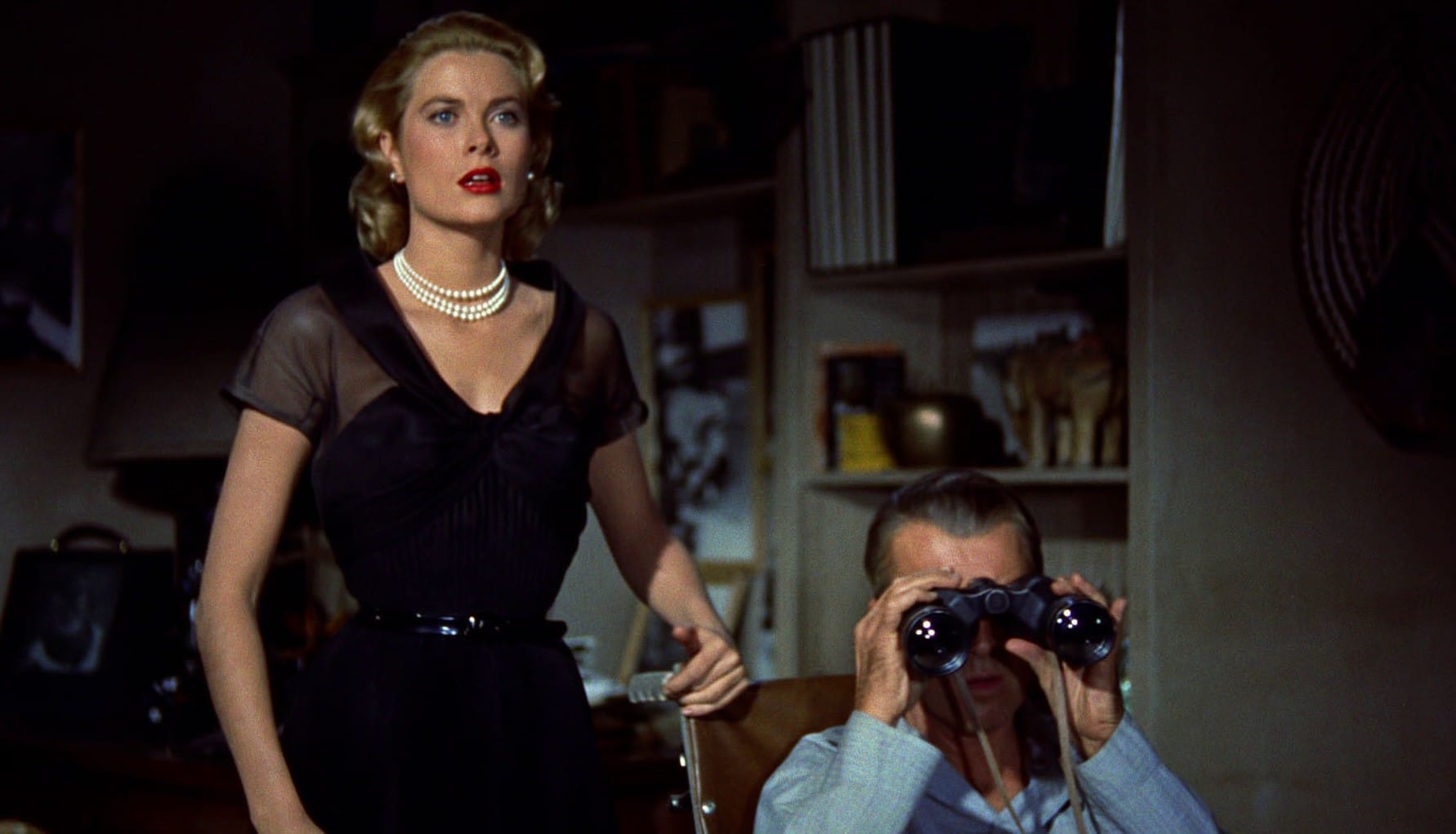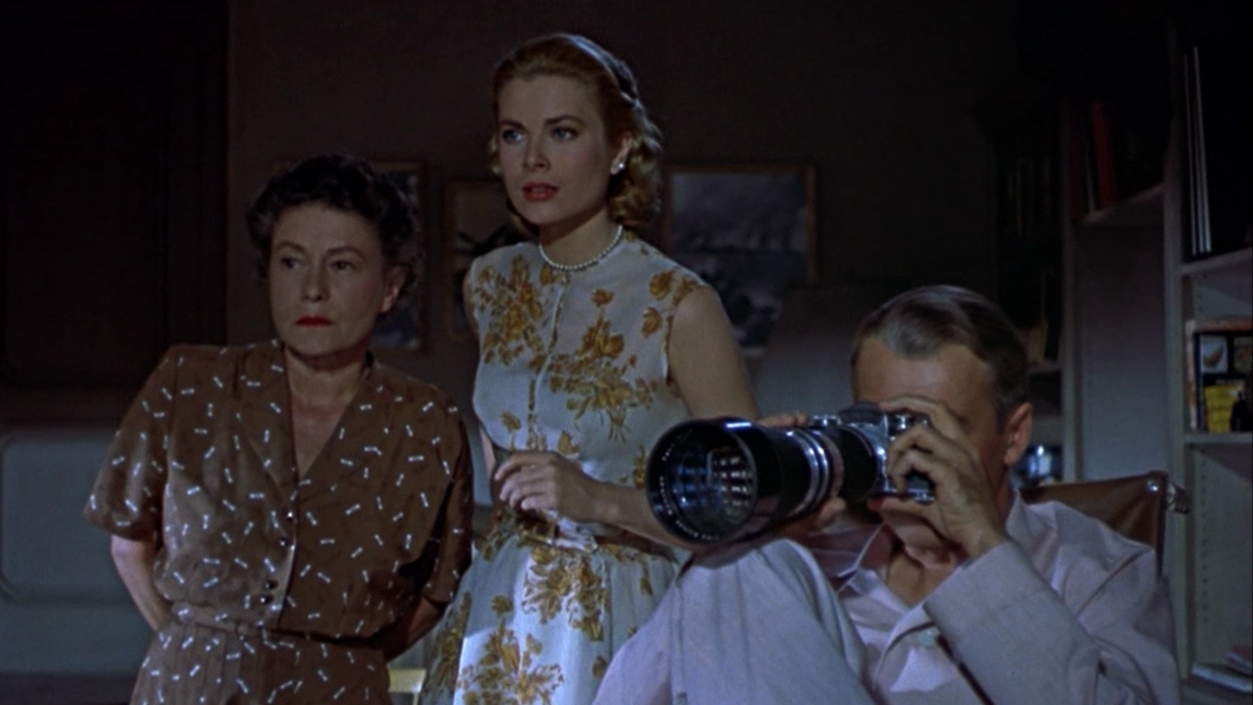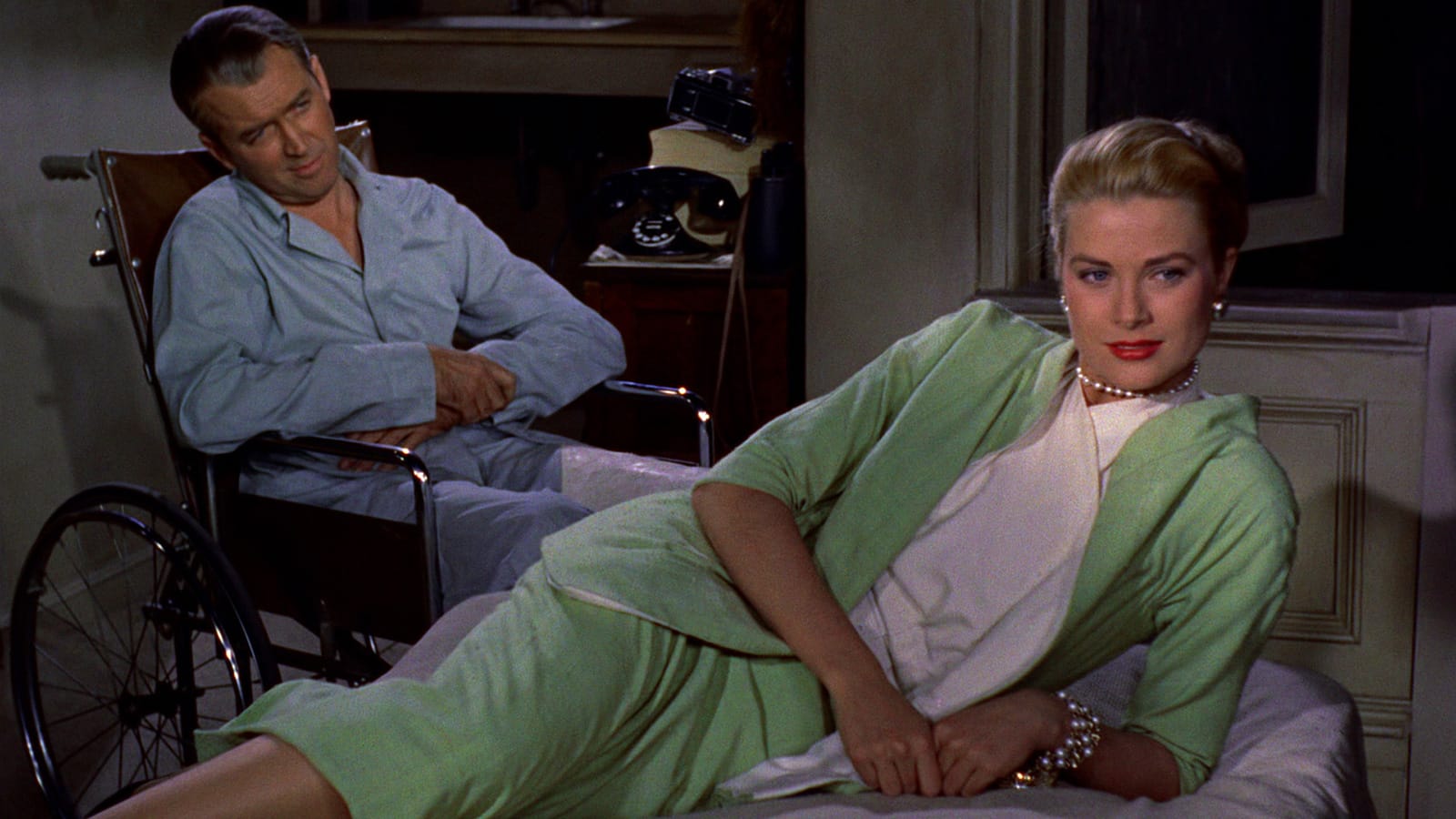20 Movies: Rear Window
“Just how would you start to cut up a human body?”

Confined to a wheelchair after an accident, a recuperating news photographer spends his time watching the occupants of the neighboring apartments through his telephoto lens. Then one night, he thinks he witnesses a murder.
I'm posting about 20 specific movies because of a social media trend-game. The idea was that you choose 20 movies that greatly influenced you, and then you post the poster of each one, one per day, for 20 days. No reviews, no explanations, just the posters. So, I’m doing that.
But I also wanted to talk about them a little bit, so...
Rear Window is the first Alfred Hitchcock film I ever saw, and while it’s probably not my favorite Jimmy Stewart—that’s probably The Philadelphia Story—it’s still my favorite Hitchcock, so it’s a good one for the fifth spot on my list of twenty most personally influential films.

Rear Window is a 1954 American mystery thriller film directed by Alfred Hitchcock and written by John Michael Hayes, based on Cornell Woolrich's 1942 short story It Had to Be Murder. It premiered at the 1954 Venice Film Festival, and is considered to be not only one of Hitchcock's best films, but one of the greatest films ever made. It received four Academy Award nominations, appears on multiple AFI lists, and in 1997, it was added to the United States National Film Registry in the Library of Congress as being "culturally, historically, and/or aesthetically significant.”
It’s just a damn good film.
Set in a sweltering New York City summer, L.B. ”Jeff” Jeffries is a restless magazine photographer cooped up in his studio apartment with his leg in a cast. Slouched in PJs and plaster in his wheelchair, through his windows he watches as the everyday dramas of his neighbors across the courtyard play out in their many apartment windows—a single set built by Hitchcock. There’s Miss Lonelyhearts, who throws dinner parties for imaginary gentleman callers. Miss Torso, a young dancer who practices in her underwear and regularly fends off several suitors at a time. There’s the couple who sleep on a mattress on their upper balcony to avoid the heat and lower their beloved little dog in a basket down to the garden to do his business. There’s a pair of newlyweds who only have eyes for each other, and a composer who fears his career is going nowhere. Finally, there is Lars Thorvald, whose wife spends all day in bed while he’s at work, and all night nagging him when he’s home.
Then, late one night, there’s a scream.
After that, Thorvald‘s curtains are pulled, and Jeff sees him leaving several times in the wee hours of a rainy night, a suitcase in hand. The next day, his wife is gone. Jeff begins to suspect that a murder has taken place.
Due to his leg cast, Jeff hasn’t left his apartment in weeks, and in this time, he only has two regular visitors. One is the nurse that the insurance company sent, Stella, a pragmatist who chides Jeff for being a Peeping Tom, but who also enjoys a bit of the daily dish. The other is his loving fiancée—real-life princess Grace Kelly—Lisa Fremont, who is a ridiculously elegant uptown lady, a woman who—even if this is Jimmy Stewart we’re talking about here—is simply way out of his league. Jeff is a jerk to Lisa, because he’s a man-baby afraid of commitment and his own looming mortality. As Jeff sees it, his life has two problems... One, he’s stuck in a cast, and two, someone loves him.
Because that’s the crazy part, Lisa, this luminescent angel, loves Jeff so much, she‘s willing to wade through the absolute flood of bullshit he puts out due to his weird fear of being in a relationship. Lisa, meanwhile, has decided on her future, and it's Jeff, whether he knows it or not. It’s clear this is why she joins his investigation, because at least then she is an active part of his life, instead of feeling like she's an unwelcome anchor, dragging him down and chaining him up, trying to close off his preferred future in favor for her own.
And so, the three of them begin to investigate…

Hitchcock is all about indulging our voyeuristic tendencies, and in Rear Window, he is at his most skillful, and with such a gleeful self-awareness too. While Jeff is stuck in his wheelchair, trapped in his apartment, watching his neighbors through his telephoto lens, he is the camera. So as a result, we’re trapped with him. What he sees is what we see. It’s creepy, yes, he is a Peeping Tom, after all, but we are no better really. Much like his nurse, Stella, we might poo-poo his current obsessions, but we are quickly just as transfixed.
In this way, Rear Window is all about the act of going to the movies, the experience of sitting in a dark room and looking into other people's private lives, the thrill of watching and wondering and filling in the gaps.
Even better, Jeff’s voyeuristic viewings of his neighbors is also a tour of the ups and downs of romance. Across the courtyard, he is seeing marriage in its various stages and possibilities, from those who want love, to those who find love, from the excited newlyweds cavorting behind their blinds, to the bickering older couple who are seemingly resigned to one another. With Lisa at his back, dropping hint after hint, desperate for a sign that he would reciprocate her love, Jeff stares out at his potential future, and it clearly unnerves him.
This makes no sense, of course, because Lisa is incredible, but at least the film, through Stella, constantly lets us know what a dumbass he is.
On top of all that, Rear Window is first and foremost a riveting thriller. Our trio play a game of cat and mouse with the man across the way, lumbering around his apartment and up and down his hallway. He is a menacing figure that we almost never hear speak, and at one point is merely the baleful glowing eye of his cigar, sitting quietly, alone in the dark while the neighborhood gawks at a little dead dog down in the courtyard. He is singularly terrifying, which is amazing for as little as we actually see him do in the film.
He's also a somewhat sympathetic character too. I mean, in the end, he did kill his wife, sure, but he also throws the neighborhood Peeping Tom out a second story window, so he’s not all that bad, right?

One enduring thing about this film for me is that image in my head of the courtyard, of all those neighbors living their lives, the ups and downs and the day-to-day things, all in such close proximity to one another. I think, between this film and the West Side Story movie from the 60s, this was how my young mind always pictured NYC, at least until I finally saw Taxi Driver.
I also really love how Lisa aids the investigation by providing insight and advice, but from a “women’s” point of view: “Why, no woman would go on a trip without her favorite handbag… she simply must have been murdered!” I’m paraphrasing, of course, but not by much. I also love how she very icily swirls her brandy while regarding Jeff’s detective friend with cool-eyed disapproval. Fantastic.
Hitchcock once said that there’s a difference between surprise and suspense. Surprise is when a bomb under a table goes off. Boom. Surprise. Suspense is when we know there’s a bomb under the table but not when it will go off. Jump scares, like the kind you get in modern slasher films, either from something lunging from the dark suddenly, or from sudden jarring music making you think that happened, is transitory, it dissipates. It's a lot like going through a haunted house ride again, there’s no value upon a second viewing, because you already know what's around the next corner. Jump scares are a rush, sure, but it doesn’t last. Rear Window lasts. The suspense lasts. You know what’s going to happen, you know how it all ends up, but still, you’re right there with Jeff, stuck in his wheelchair, watching Lisa across the way as she sneaks around Thorvald’s apartment, whispering helplessly: “Get out of there!”
And it’s a delight.

Highly recommended.
